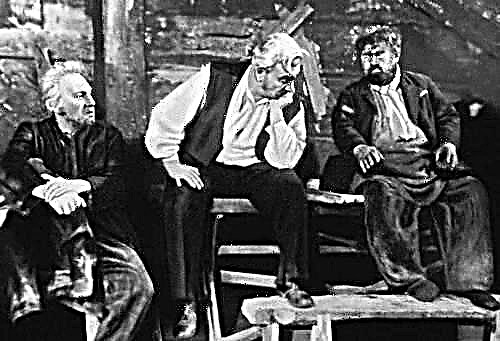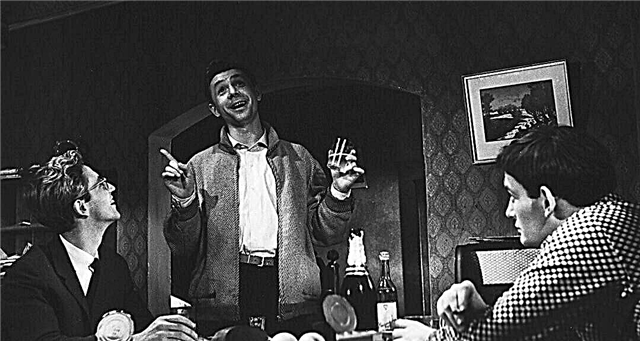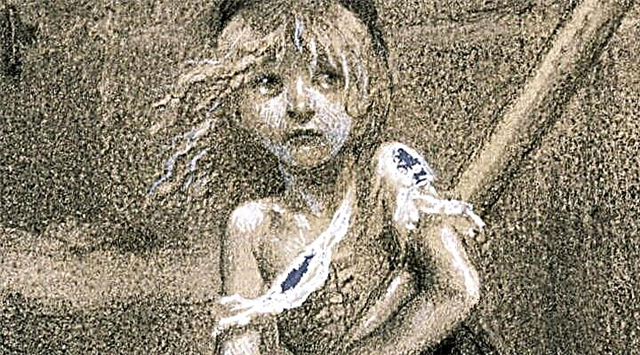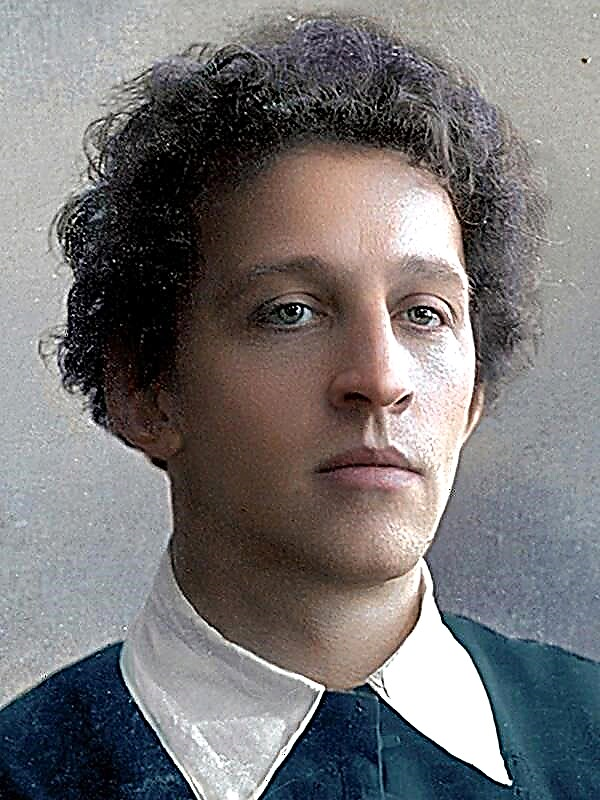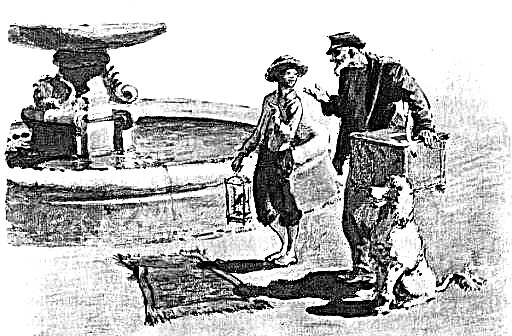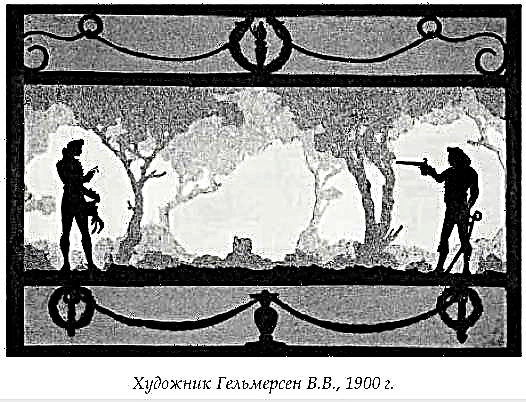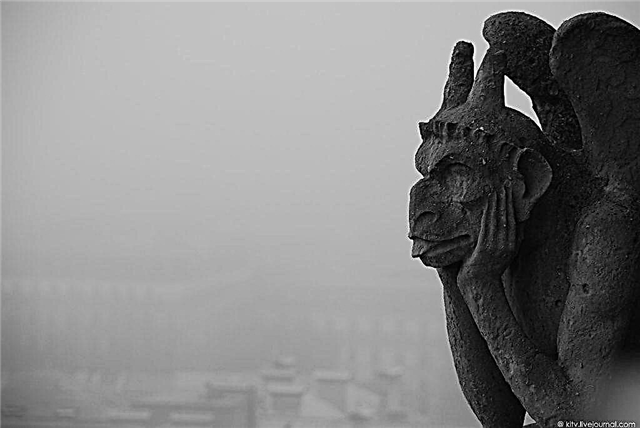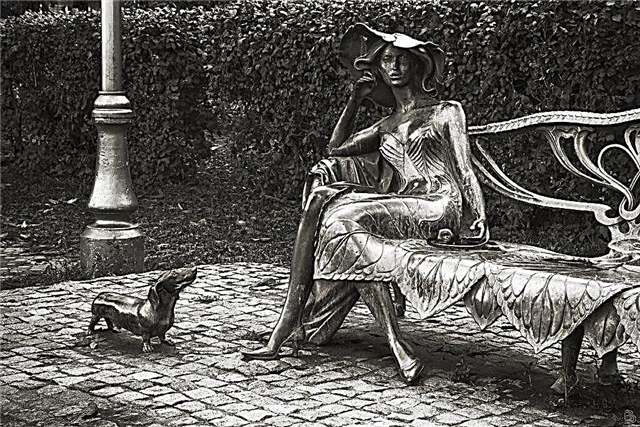This is a tragedy about rock and freedom: not the freedom of a person to do what he wants, but to take responsibility even for what he did not want.
In the city of Thebes ruled King Laius and Queen Jocasta. From the Delphic oracle, King Laius received a terrible prediction: "If you give birth to a son, you will perish at his hand." Therefore, when his son was born, he took it from his mother, gave it to a shepherd and ordered him to be taken to the mountain pastures of Kiferon, and then tossed to predatory animals. The shepherd felt sorry for the baby. On Kiferon, he met a shepherd with a herd from a neighboring kingdom - Corinth, and gave the baby to him without telling who it was. He carried the baby to his king. The king of Corinth had no children; he adopted a baby and raised as his heir. They called the boy - Oedipus.
Oedipus has grown strong and smart. He considered himself the son of a Corinthian king, but rumors began to come to him that he was an adopted man. He went to the Delphic oracle to ask: whose son is he? The oracle answered: "Whatever you are, you are destined to kill your own father and marry your own mother." Oedipus was terrified. He decided not to return to Corinth and went wherever his eyes looked. At a crossroads, he met a chariot, an old man with a proud posture rode on it, around - several servants. Oedipus didn’t step aside at the right time, the old man hit him with a strekal from above, Oedipus hit him with a staff in response, the old man fell dead, a fight began, the servants were killed, only one escaped. Such travel cases were not uncommon; Oedipus went further.
He reached the city of Thebes. There was confusion: the Sphinx monster, a woman with a lion's body, settled on a rock in front of the city, she asked puzzles to passers-by, and who could not guess, they tore them apart. King Lai went to seek help from the oracle, but was killed by someone on the road. The Oedipus Sphinx made a riddle: “Who walks in the morning for four, in the afternoon for two, and in the evening for three?” Oedipus replied: "This is a man: a baby on all fours, an adult on his own two, and an old man with a staff." Conquered by the correct answer, the Sphinx threw herself from a cliff into the abyss; Thebes were freed. The people, rejoicing, declared the wise Oedipus the king and gave him the widow of Jocastas Laiev as his wife, and Jocasta's brother Creon as his assistant.
Many years passed, and suddenly Thebes fell upon God's punishment: people died from pestilence, cattle fell, bread was dried. The people turn to Oedipus: "You are wise, you saved us once, save now." This plea begins the action of the tragedy of Sophocles: the people stand in front of the palace, Oedipus comes out to him. “I already sent Creon to ask the oracle for advice; and now he is in a hurry back with the news. " The oracle said: “This divine punishment is for the murder of Laius; find and punish the killer! ” “Why haven't they been looking for him so far?” “Everyone was thinking about the Sphinx, not about him.” “Okay, now I'll think about it.” A choir of people sings a prayer to the gods: turn your anger away from Thebes, spare the perishing!
Oedipus announces his royal decree: to find the killer Lai, to excommunicate him from fire and water, from prayers and sacrifices, to expel him to a foreign land, and may the curse of the gods fall upon him! He does not know that he curses himself with this, but now they will tell him about it. The blind old man, the soothsayer Tiresias lives in Thebes: will he indicate who the killer is? “Do not make me speak,” Tiresias asks, “it will not be good!” Oedipus is angry: “Could you yourself be involved in this murder?” Tiresias flares up: “No, if so: the killer is you, yourself and executions!” ““ Isn't Creon eager for power, has he persuaded you? ” - “I do not serve Creon and not you, but the prophetic god; I’m blind, you are sighted, but you don’t see what sin you live in and who your father and mother are. ” - "What does it mean?" - "Solve it yourself: you are a master at it." And Tiresias leaves. The choir sings a frightened song: who is the villain? who is the killer? is Oedipus really? No, this cannot be believed!
An agitated Creon enters: does Oedipus suspect him of treason? “Yes,” Oedipus says. “Why do I need your kingdom? The king is a slave of his own power; it’s better to be a royal assistant, like me. ” They shower each other with cruel reproaches. Queen Jocasta, the sister of Creonte, the wife of Oedipus, comes out to their voices from the palace. “He wants to expel me with false prophecies,” Oedipus tells her. “Do not believe,” says Jocasta, “all the prophecies are false: Laia was predicted to die from her son, but our son died as an infant on Kiferon, and Laia killed an unknown traveler at a crossroads.” - "At the crossroads? Where? when? what was Laius like? ” - "On the way to Delphi, shortly before your arrival to us, and he looked gray-haired, straight and, perhaps, looks like you." - "Oh God! And I had such a meeting; Wasn't I that traveler? Is there a witness left? ” “Yes, one was saved; this is an old shepherd, already sent for him. " Oedipus is in a state of excitement; the choir sings an alarmed song: “Unreliable human greatness; gods, save us from pride! ”
And here in action there is a turn. An unexpected person appears on the scene: a messenger from neighboring Corinth. The Corinthian king died, and the Corinthians call Oedipus to accept the kingdom. Oedipus is clouded: “Yes, all prophecies are false! It was predicted to me to kill my father, but now - he died his death. But I was also predicted to marry my mother; and while the Queen Mother is still alive, there is no way for me to Corinth. ” “If only this holds you back,” the messenger says, “calm down: you are not their own son, but your adopted son, I myself brought them to you as a baby from Kiferon, and some shepherd gave you to me there.” "Wife! - Oedipus addresses Jocasta, - is this the shepherd that was with Lae? More likely! Whose son I really want to know! ” Jocasta already understood everything. “Do not get it,” she prays, “it will be worse for you!” Oedipus does not hear her, she leaves for the palace, we will not see her anymore. The choir sings a song: maybe Oedipus is the son of some god or nymph, born on Kiferon and planted to people? so it happened!
But no. They bring the old shepherd. “This is the one you gave me in infancy,” the Corinthian messenger tells him. “Here is the one who killed Lai before my eyes,” the shepherd thinks. He resists, he does not want to speak, but Oedipus is implacable. “Whose child was that?” He asks. “King Lai,” the shepherd answers. “And if it’s really you, then on the mountain you were born and on the mountain we saved you!” Now, finally, Oedipus understood everything. “Cursed is my birth, cursed is my sin, cursed is my marriage!” - he exclaims and rushes to the palace. The choir sings again: “Unreliable human greatness! There are no happy people in the world! Oedipus was wise; Oedipus was king; and who is he now? Father-killer and incest! ”
A messenger runs out of the palace. For involuntary sin - voluntary execution: Queen Jocasta, the mother and wife of Oedipus, hanged herself in a noose, and Oedipus desperate over her corpse, tore the gold clasp from her and thrust the needle into his eyes so that they would not see his monstrous deeds. The palace swings open, the choir sees Oedipus with a bloody face. “How did you decide? ..” - “Fate decided!” - “Who inspired you? ..” - “I am my own judge!” Assassin Laia - exile, the defiler of the mother - blinding; "O Kiferon, the mortal crossroads, O double-bed!" Faithful Creon, forgetting the insult, asks Oedipus to remain in the palace: "Only the neighbor has the right to see the torments of his neighbors." Oedipus prays to let him go into exile and says goodbye to the children: “I don’t see you, but I’m crying for you ...” The choir sings the last words of the tragedy: “O fellow citizens of Thebans! Look here: here is Oedipus! / He, the resolver of the riddles, he, the mighty king, / The one on whose lot, it happened, everyone looked with envy! .. / So, everyone should remember our last day / And you can call a person happy only that / until my death I didn’t know the troubles in my life. ”

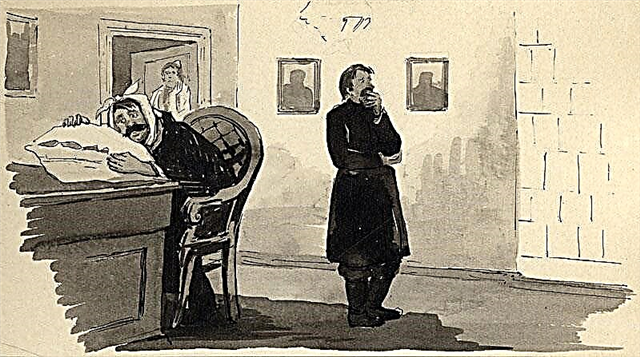
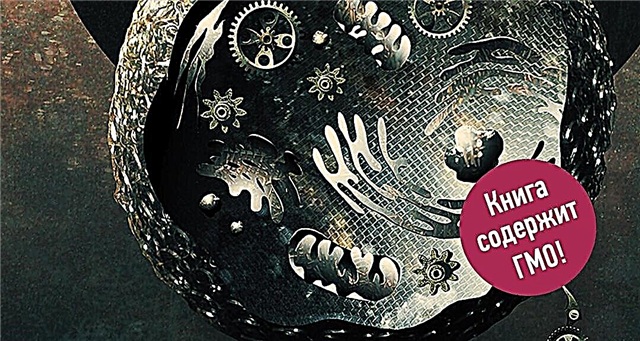 Biotechnology Sum
Biotechnology Sum Aniara
Aniara